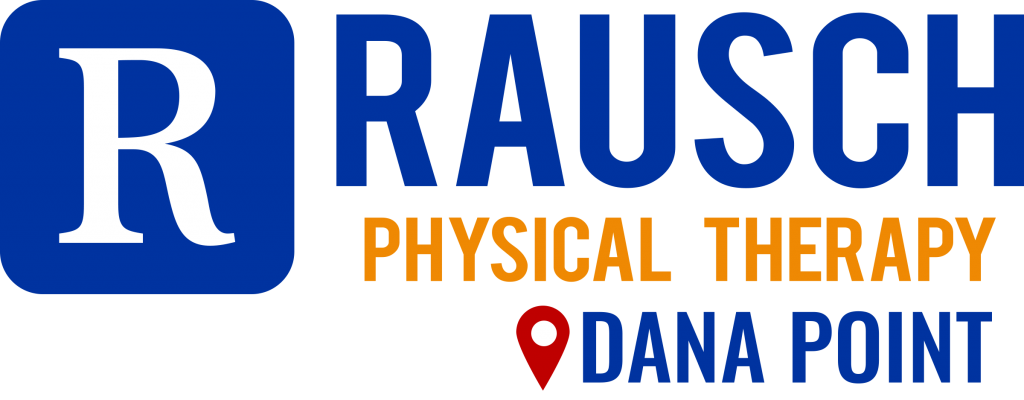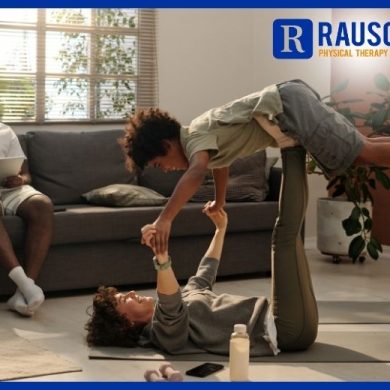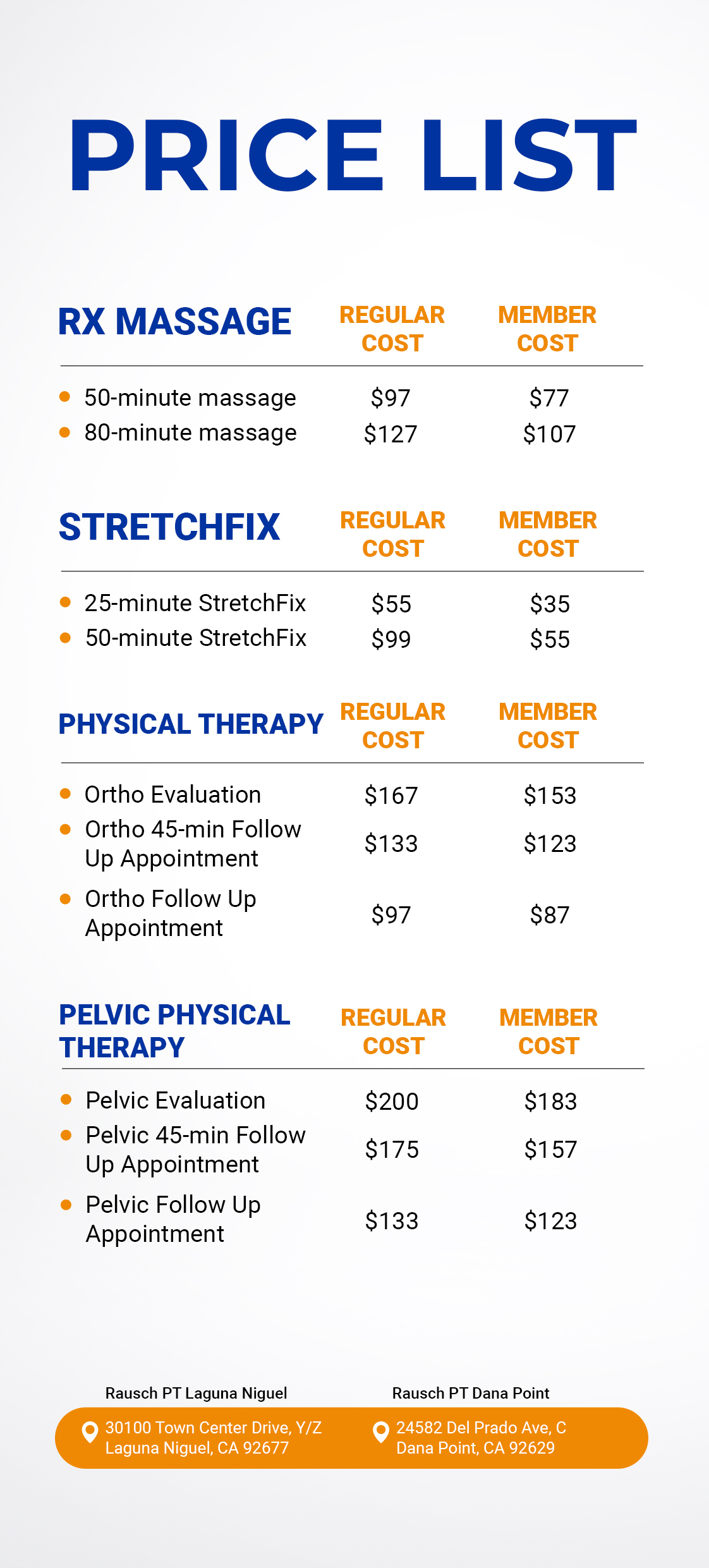1. Bring Mindfulness Into Your Day Stress and anxiety don’t just affect your mind—they impact your nervous system, sleep, recovery, and even how your body experiences pain. Mindfulness and meditation,
Exercise and Insomnia
February 26, 2021 4:04 pm / Category: Dana Point
Can’t sleep? Are you having trouble getting to sleep or staying asleep? Many people have had their sleep patterns disrupted — along with many other routines — since the pandemic. Here is a helpful article that correlates exercise with helping you get some good nights’ sleep once again.
Regular exercise can help most people achieve better quality sleep, but what if you’re experiencing more serious sleep problems? Up to 15 percent of adults suffer from chronic insomnia, which is defined by difficulties falling or staying asleep, waking up too early, or experiencing restless sleep multiple times a week.
How Does Exercise Help Treat Insomnia?
Studies have shown that in as little as four weeks, individuals with chronic insomnia who begin regular exercise can fall asleep up to 13 minutes faster and stay asleep 18 minutes longer. In fact, study authors found that exercise was just as effective as hypnotic drugs in relieving insomnia. Researchers have a few theories why this might be the case.
Exercise causes changes in your core body temperature. During exercise, your body increases its temperature, and afterward your body’s temperature drops. That drop in temperature mimics a similar temperature change that happens before you fall asleep when your body cools down in the evening in preparation for rest. The similarity between these changes may signal to your brain that it’s time to sleep.
Exercise relieves symptoms of anxiety and depression. Insomnia often goes hand-in-hand with anxiety and depression. These symptoms — including anxious thoughts, worry, and stress — can interfere with one’s ability to fall asleep. Exercise can mitigate these symptoms through the release of endorphins, positively improving sleep quality.
Exercise may realign your internal body clock. Some people experience insomnia due to a misaligned internal body clock. A disruption of one’s circadian rhythms can cause them to naturally feel tired later at night than “normal.” Depending on the time of day they exercise, it can help reset their body clock and help them fall asleep earlier. Further, some forms of exercise, like running, boost serotonin (a hormone involved in the sleep-wake cycle), which may improve the brain’s ability to metabolize serotonin and regulate sleep.
While researchers are still working to understand exactly how physical activity affects sleep, they’ve found that moderate aerobic exercise is the most effective at relieving insomnia. Specifically, moderate aerobic exercise increases the amount of time you spend in a deep sleep. Deep sleep is the stage where your body restores and replenishes itself, healing your muscles and tissues to prepare for more exercise.
Can a Lack of Exercise Induce Insomnia?
Multiple studies have found that regular exercise correlates with better sleep. Across age groups, individuals who have a regular exercise routine are less likely to have insomnia and sleep issues. Further, those who are more physically active tend to be less likely to develop insomnia later in life, indicating that exercise also acts as a protective function against insomnia.
Conversely, a lack of exercise is associated with insomnia. Along with factors like poor health, stress, old age, and unemployment, lack of regular exercise is a predictor of insomnia. Problematically, when people are suffering from insomnia, it can be harder to be physically active due to higher levels of daytime fatigue and sleepiness.
Can Exercise Cause Insomnia?
In general, the answer is no. However, some people experience exercise-induced insomnia if they exercise too close to bedtime, while others have no trouble falling asleep right afterward.
For some people, exercising too late in the day can keep them up at night. In addition to elevating your mood, the endorphin release associated with exercise can energize your brain, leading some people to feel more alert. For this reason, experts recommend avoiding exercise at least 2 hours before bed so those effects can wear off.
However, the drop in body temperature that occurs after exercising can begin 30 to 90 minutes later, which may help with falling asleep.
To figure out the right time for you to exercise, consider keeping a sleep diary. Record when you exercise, what type of exercise you did and for how long, when you went to bed, and how long it took you to fall asleep. Just make sure you don’t make any other changes (like eating heavy meals or drinking coffee or alcohol) that otherwise might affect your sleep and interfere with your results.
What Types of Exercises Are Best for Insomnia?
While the options for exercise routines and movements are numerous, note that only moderate-intensity aerobic exercise, like walking, has been shown to relieve insomnia. Vigorous aerobic exercise, like running or resistance weight lifting, has not been shown to improve sleep.
Just a single 30-minute exercise session can reduce the time it takes you to fall asleep, and help you sleep longer overall. But these effects are stronger when you undertake a regular exercise program. Studies have shown that long-term exercise (ranging from periods of four to 24 weeks) enables individuals with insomnia to fall asleep faster, sleep longer, and enjoy better sleep quality than they did before exercising.
Moderate aerobic exercise can help relieve other symptoms associated with insomnia, too. For individuals with comorbid insomnia and anxiety, it can significantly lower pre-sleep anxiety, reducing the anxious thoughts that make it tough to fall asleep.
After a period of four to six months, a regular moderate aerobic exercise routine can also reduce depression symptoms and reduce the time it takes to fall asleep. Overall sleep quality improves, and you’re more likely to feel well-rested upon waking up. Best of all, the participants in these studies enjoyed the same results regardless of whether they exercised in the morning or late afternoon.
Exercise can be a powerful tool in relieving insomnia. If you are having trouble sleeping, consult your doctor about an appropriate exercise regimen to help you enjoy better sleep and wellbeing.
Reference: {https://www.sleepfoundation.org/insomnia/exercise-and-insomnia}
Did you know you can be evaluated by a Rausch physical therapist who can help streamline the right routine for you to prevent injury and sleep better sooner? Did you know there is no prescription needed from a doctor to see us? Give us a call at 949-276-5401 or find us on Facebook at https://www.facebook.com/rauschpt/. Don’t forget: there’s no prescription needed to see a PT in California.
If you find yourself in discomfort or think you could benefit from a personalized exercise plan, talk to a Physical Therapist.
Let’s talk! We are here to help. Give us a call for a complimentary assessment.
Did you know there’s no prescription needed from a doctor to see us? (949) 276-5401






